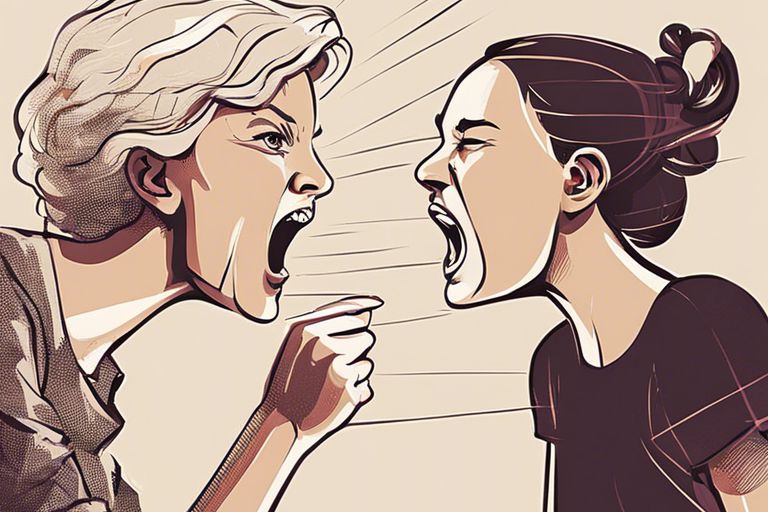Why Do I Want My Boyfriend to Cheat on Me?

Many individuals may find themselves grappling with conflicting emotions when it comes to the idea of infidelity in relationships.
It’s crucial to understand the underlying reasons behind such thoughts to navigate challenges and emotions effectively.
In this blog post, we explore the intricacies of why some individuals may harbor the desire for their partners to cheat on them, delving into the psychological and emotional implications of such a complex phenomenon.
Key Takeaways:
- Seeking Validation: Wanting your boyfriend to cheat on you may be a subconscious desire for validation that you are attractive and desirable.
- Emotional Self-Sabotage: This behavior may stem from deep-seated insecurities or fear of intimacy, leading to self-sabotage in relationships.
- Communication Issues: It could signal a lack of effective communication in the relationship, where expressing needs and emotions may be challenging.
- Exploring Boundaries: The desire for your boyfriend to cheat may indicate a need to assess your boundaries and values in the relationship.
- Therapy or Counseling: If these feelings persist, seeking therapy or counseling can help explore the underlying reasons for such desires and work towards healthier relationship patterns.

Psychological Underpinnings
Understanding Forbidden Desires
For some individuals, the desire for their partner to cheat on them can stem from deep-seated psychological factors. It may be linked to low self-esteem, a need for validation, or underlying unresolved issues from past relationships or childhood experiences. These forbidden desires can manifest as a form of self-sabotage or a way to test the loyalty of their partner.
The Concept of Cuckolding in Relationships
With the rise of interest in alternative relationship dynamics, the concept of cuckolding has gained attention. Cuckolding refers to a scenario where one partner derives arousal from the other engaging in sexual activity with someone else. This fetish taps into the complex interplay of power dynamics, trust, and sexual desires within a relationship. Understanding the nuances of cuckolding can provide insights into the reasons behind wanting one’s partner to cheat.
Understanding the emotional complexities and motivations behind desiring infidelity in a relationship can shed light on deeper insecurities or unmet needs that may be driving such fantasies. While exploring these desires can be a way to understand oneself better, it is vital to approach them with caution and seek professional help if they start impacting the relationship negatively.
Societal and Cultural Influences
Media Portrayals of Infidelity
For many individuals, the media plays a significant role in shaping their perceptions and attitudes towards relationships and infidelity. From movies and TV shows to celebrity scandals, the portrayal of infidelity in popular culture can romanticize or normalize cheating, influencing individuals to desire similar experiences in their own lives.
Societal Taboos and Their Impact on Desires
Media coverage often sensationalizes infidelity, leading individuals to believe that straying outside the boundaries of a monogamous relationship can be exciting or fulfilling. For some, societal taboos around infidelity can evoke feelings of rebellion or curiosity, ultimately fueling desires to explore outside the confines of a traditional relationship.
For instance, the taboo nature of infidelity in society can create a sense of thrill or excitement for individuals who feel constrained by societal expectations. The forbidden nature of cheating can add an element of danger and excitement, appealing to those who seek something beyond the ordinary in their relationships. However, it’s imperative to recognize the potential consequences and harm that infidelity can cause to all parties involved.
Personal Dynamics in Relationships
Power Play and Control Dynamics
To understand the desire for a partner to cheat, we must investigate into the complex world of power play and control dynamics in relationships. The need for control or power can manifest in various ways, including seeking validation through jealousy or testing the loyalty of a partner. The feeling of satisfaction when someone succumbs to temptation can be a twisted way of asserting dominance within the relationship.
Self-Esteem and Seeking Validation
To explore the deeper reasons behind this desire, we must analyze the role of self-esteem and the constant need for validation in a relationship. The desire to see a partner cheat could stem from insecurities about one’s self-worth or a subconscious need for reassurance that one is desirable and valued. The thrill of the chase, even if it involves betrayal, can temporarily boost one’s confidence and validate their attractiveness.
Plus, it is crucial to recognize that seeking validation through infidelity is a dangerous game that can have long-lasting negative effects on both individuals involved. It can create a toxic cycle of mistrust, manipulation, and emotional turmoil that can ultimately destroy the relationship and damage self-esteem even further.
Coping Mechanisms and Communication
Expressing Unconventional Desires
Coping with the desire for your boyfriend to cheat on you can be challenging. It’s important to find healthy ways to express these unconventional desires. This might involve open and honest conversations with your partner about your fantasies and exploring together what these desires mean for your relationship.
Building Trust and Setting Boundaries
An imperative aspect of coping with these feelings is to build trust and set clear boundaries in your relationship. Communication is key in this process. Discussing your fears and desires with your partner can help establish a stronger foundation of trust and mutual understanding.
Plus, establishing clear boundaries can prevent any unintentional harm to your relationship. Encourage open and honest communication to ensure that both you and your partner feel heard and understood. By setting boundaries together, you can navigate these complex emotions in a healthy and supportive way.
Conclusion
Following this exploration into the unsettling desire for a partner to cheat, it is important to acknowledge that such feelings are often rooted in complex emotions and psychological dynamics. The urge for infidelity may stem from a need for validation, a desire for excitement, or even a subconscious wish to end a relationship. It is crucial for individuals experiencing these emotions to reflect on the underlying issues prompting such thoughts and seek professional guidance if necessary. Open and honest communication with one’s partner is also imperative in navigating these challenging feelings and strengthening the relationship. Ultimately, understanding the reasons behind this desire can lead to personal growth and a deeper understanding of one’s own needs and boundaries.
FAQ
Q: Why do some people want their boyfriends to cheat on them?
A: Some individuals may intentionally desire their boyfriends to cheat on them due to underlying emotional issues, seeking validation through negative experiences, or a subconscious need for drama in their relationships. This behavior is often complex and may indicate deeper insecurities that need to be addressed.
Q: What are the potential consequences of wanting your boyfriend to cheat on you?
A: Wanting your boyfriend to cheat on you can lead to trust issues, emotional turmoil, and damage to the relationship’s foundation. It can also create a cycle of self-destructive behavior and hinder personal growth and self-esteem. Seeking professional support to understand and address these desires is crucial.
Q: How can someone address their desire for their boyfriend to cheat on them?
A: Acknowledging and reflecting on the reasons behind this desire is the first step towards addressing it. Open and honest communication with your partner, as well as seeking therapy or counseling, can help unpack underlying issues and develop healthier patterns of behavior. Building self-awareness and self-worth are important in overcoming these harmful desires.






